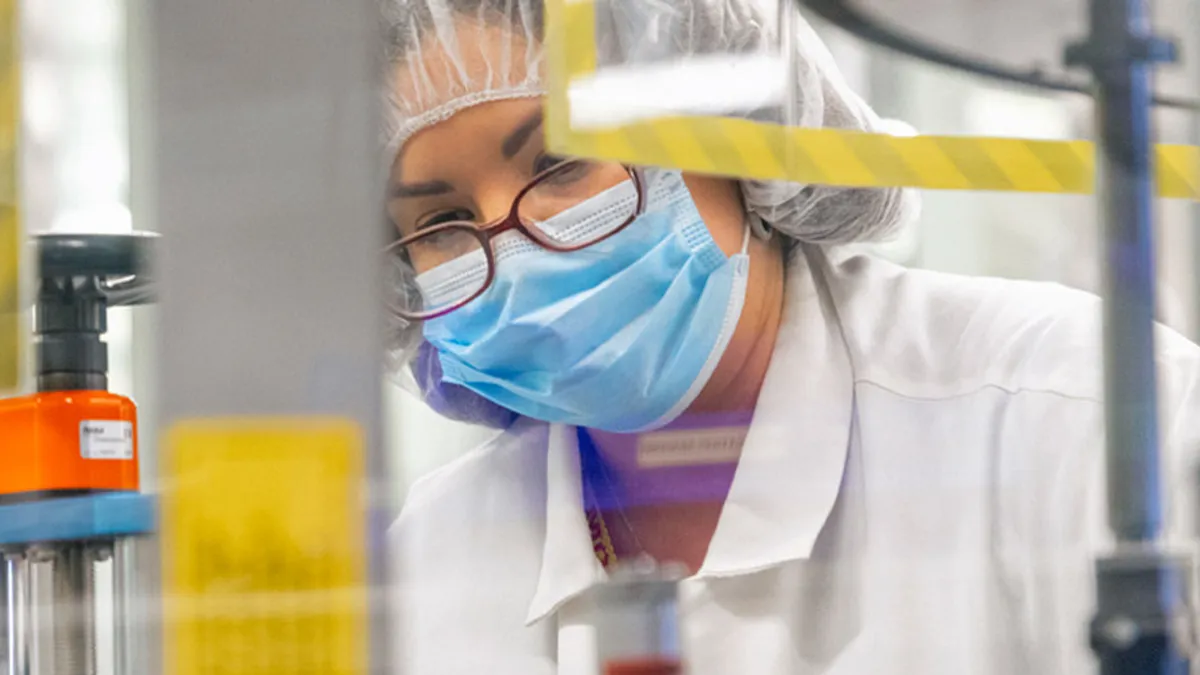Dive Brief:
-
A COVID-19 antibody test from Siemens Healthineers outperformed rival assays from Abbott, DiaSorin and Roche in a head-to-head comparison run by England’s public health agency, according to a report released Wednesday.
-
Public Health England (PHE) said Siemens’ SARS-CoV-2 Total product was the only test to meet both sensitivity and specificity criteria, or the ability of a test to avoid false negatives or false positives. The other three assays fell short of the targeted sensitivity, although an analysis using revised thresholds suggests they could still play a role in the response to the coronavirus pandemic.
-
Siemens said June 1 following emergency use authorization in the U.S. it had production capacity for more than 50 million tests per month. The company said Thursday it has capacity to supply up to 1 million of the tests per month in the U.K. and Ireland region.
Dive Insight:
Serological assays, which can detect antibodies against the coronavirus, proliferated worldwide as pandemic response evolved. The tests give public health authorities the means to assess how many people have previously been infected with SARS-CoV-2 and, more controversially, the ability to identify individuals who may have immunity against the virus. Still, questions about the accuracy of the tests remain.
“Assembling appropriate and large sets of samples to thoroughly test the performance of these assays has been difficult within the very short time frames of assay development and release, and direct comparisons of platforms have been limited,” PHE wrote in its report.
To address those issues, PHE worked with researchers at the University of Oxford and hospitals in the city to collect and analyze 536 samples taken from adults with laboratory-confirmed infections more than 20 days after the onset of COVID-19 symptoms. Antibodies against SARS-CoV-2 develop over time and manufacturer assessments show tests perform better on samples taken at least two weeks after infection. PHE also collected 994 specimens taken between 2015 and 2018.
Immunoassays from Abbott, DiaSorin, Roche and Siemens were used to analyze the samples. All the assays cleared the 98% specificity target set by the U.K.'s Medicines and Healthcare products Regulatory Agency (MHRA). At 98.6%, DiaSorin’s test delivered the lowest specificity. All the other tests achieved specificities of 99.8% or 99.9%.
However, the sensitivity results were more divergent. At 98.1%, Siemens was the only company to top MHRA’s 98% target. Abbott’s assay performed the worst, recording a sensitivity of 92.7%, while Roche came closest to meeting the target with its 97.2% result. DiaSorin placed in the middle at 95.0%. None of the tests performed as well as they did in the company-run studies quoted in their instructions for use.
While Siemens’ test was the only immunoassay to meet both targets, the other products may still be able to deliver useful results. Authorities including the Centers for Disease Control and Prevention have focused on the specificity of antibody tests to cut the risk of false positives that could cause people to erroneously think they are immune to COVID-19. All the tests met the specificity target.
In addition, the tests from Abbott, DiaSorin and Roche met the sensitivity target when PHE tweaked the parameters. Changing the assay thresholds to lower test specificity to 98% brought the sensitivity of Roche’s product above the MHRA target. In that analysis, the Abbott and DiaSorin tests fell just short of the 98% sensitivity target. At the same time, all four tests met the sensitivity and specificity criteria when the revised assay thresholds were applied to samples taken more than 30 days after the onset of symptoms.
The analyses form part of a wider effort to better understand the performance of COVID-19 tests. Last month, the U.K. set up a research program to compare coronavirus tests, including serological assays, while in the U.S. FDA is assessing antibody tests and pulling poor-performing products from the market.












